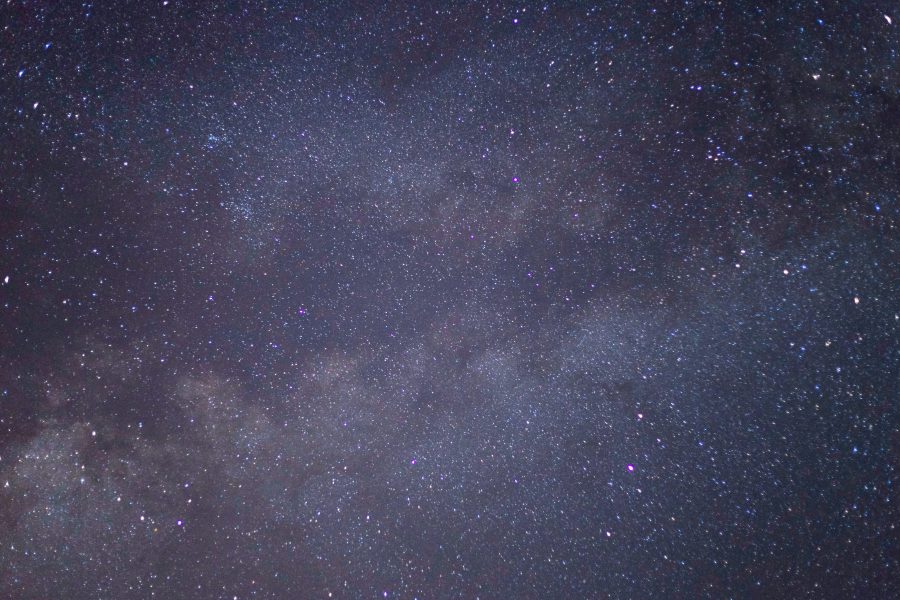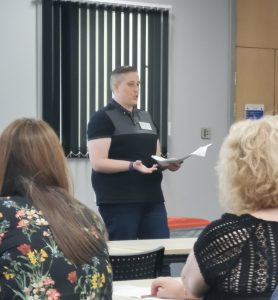
Earlier this month, PET alumnus Dalton spoke at the PLA conference about the impact of studying science in prison. Read on to find out how Durham University’s innovative Think Like a Scientist programme helped him find his freedom.
When someone asks you questions, you freeze. What is science? What is it to be human? What is it to be alive? What is around me?
I see nothing: a wall, some barbwire. I hear nothing: an alarm, someone running and then screams, shouts. My environment might as well be the surface of the moon; I don’t even feel like gravity applies to me anymore. I am floating, bouncing off walls. I see bare floors: scuffed, hollow, dirty, with nothing but space dust. I am so far removed from life, it’s like a dot outside my squared slit they call a window.
When there’s no more to hang on to other than space, you end up falling for a long time. That’s all you have left: time. Survival kicks in but you seek comfort, connection, you need purpose. I look around and see drugs, suicide attempts, I see violence. I feel like a child growing up in a world that tells me, “No, you can’t go to bed, get up, eat, sleep, don’t ask me!”
What I wanted to remember was how to feel human again
I am trapped along with so many others; we carry identities that keep our closed secure environments intact: druggies, criminals, villain, victim, woman, man. In a system of no information, we have no idea what has shaped us, how it broke us, or how to un-become this negative world we are living in. What can I do?
I felt irrelevant. I had no purpose but I knew I wanted to connect. What I wanted to remember was how to feel human again. Maybe you can’t identify, maybe I can’t identity with you. After all, what shapes a person? We all have perceptions, different experiences. It was with this line of thought that I put my name down for a course.
It was run by a Doctor I had never sat and talked or been around before. The course was the first course of its kind and it had a Durham university stamp on. It was called, Think Like a Scientist, and it would go through topics such as, the science of sleep, climate change, plate tectonics and artificial intelligence (which would be delivered by Professor Danielle George MBE). We would do assignments, analyse data and had to do a final presentation in front of everyone at the end of the course on an assigned scientist, to choose the face of the fifty-pound note.
I felt like I was living a TED video, which I had waited up to see on Way Out TV at 11pm
I remembered how I had felt at school; I felt all those negative feelings about education bubble up. As I walked down the corridor, I entered the room; I was used to seeing stern faces. I wasn’t sure what I thought a scientist would look like, but Phil Heron started asking me why the lights wouldn’t come on and I jumped around saying, “It’s on a sensor,” and he said, “What if it’s broken?” Before long, I had gone through ideas and come to a few conclusions and as we sat down, he said, “Congratulations! You are already thinking like a scientist!” I have never grinned so much! It was like my Karate Kid moment of, ‘wax on wax off’, but for scientists!
I suddenly sunk back into my chair and felt gravity again. I felt connected. I felt like I was living a TED video, which I had waited up to see on Way Out TV at 11pm. My perception began to slowly go beyond the constricted views of bars, to see a bigger world. Science was connecting me to ideas and to theories; I felt like I was Fox Mulder and I had just started a case I want to believe in.
- Roots to STEM: bringing science education to prisons
- My work as a prisoner education mentor
- Find out about PET’s PUPiL network
I held the file that Phil had given us; I looked at the handouts, which were taken from articles from The Conversation, over and over again. I was blown away! We covered the science of sleep, and I found myself reflecting and connecting my patterns of sleep to stress levels, sleep deprivation and behavioural problems. I thought of my own life and where things had gone wrong, but was now thinking about theories and methods behind fact, and what it means.
When we explored dark matter, my mind found a voice. I felt like I was finding my freedom: science was breaking down myths, uncovering truths, challenging me. It was giving me a purpose and relevance I had so longed for. This universe was so much bigger than I had ever dared to dream and the mystery substance that physics still can’t identify, which makes up the majority of our universe, was dark matter, and that’s where I felt I had been.
It didn’t matter who we were or the fact we were in prison, it was re-investment in people who had felt discarded like space junk
I took from the Think Like a Scientist course not only new skills, but I had also developed a network, and science had given me back education. People like Dr Philip Heron have given us all a chance; it didn’t matter who we were or the fact we were in prison, it was re-investment in people who had felt discarded like space junk.
Science taught me about a world I had never felt a part of because I didn’t understand it. Science taught me to connect ideas, take notes, create plans, and figure out routes; it showed me that scientists will take a chance and if it does not work out, they will find another way, and another way; that you can build ideas through other people’s work and add on, develop, team work, build on failure as an achievement; but above all, learn to keep going forward.
